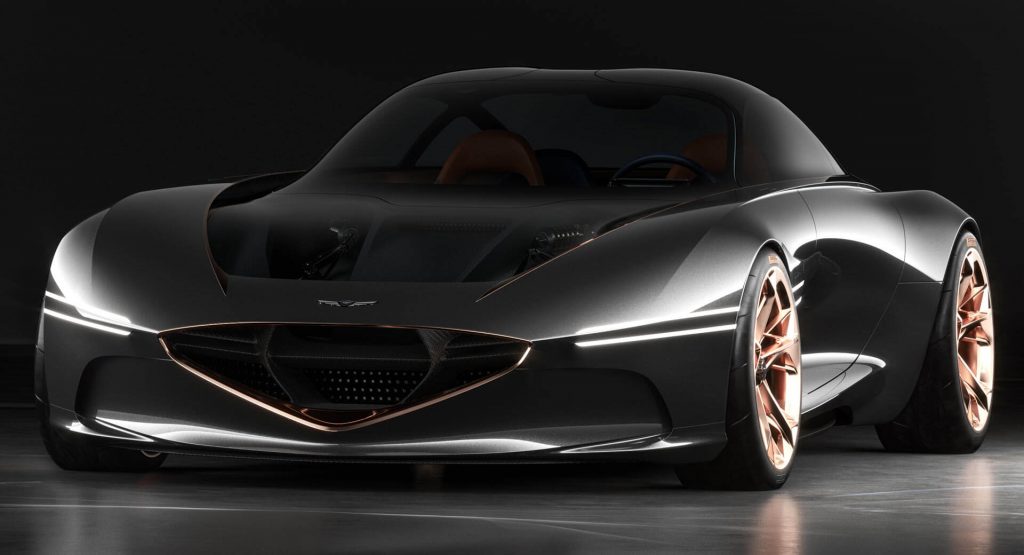The first day of the New York Auto Show is winding down but that hasn’t stopped Genesis from unveiling the all-new Essentia concept.
Designed to provide a glimpse into the company’s future, the Essentia is a stylish two-door GT car that features carbon fiber bodywork and an electric powertrain.
The concept is a radical departure from the rest of the Genesis lineup but it features a number of styling cues which could eventually show up on future models. Starting up front, the Essentia has an evolution of the company’s “crest grille” and it is notably more diamond-shaped than on models such as the G70 and G80.
Elsewhere, the concept has “quad lights” that originally debuted on the GV80 concept. Genesis says they are a “signature” of the company so don’t be surprised when they show up on future models.
Getting back to the concept itself, it has a transparent hood which provides a glimpse at its pushrod suspension. The model has also a rakish windscreen, muscular rear haunches and functional air vents behind the front wheels.
Another unique feature is the concept’s butterfly doors. They use facial recognition technology and fingerprint controls to recognize drivers and automatically open or close.
The unique styling carries over to the interior as drivers are greeted by a minimalistic cabin with a bespoke steering wheel, premium leather upholstery and eye-catching carbon fiber trim that has been layered to give it a 3D appearance. Other special touches include polished aluminum accents and 3D printed surfaces that give the cockpit a custom look.
Drivers sit behind an eight-inch digital instrument cluster but it pales in comparison to the massive widescreen display which spans nearly the whole width of the vehicle. It features a digital rearview mirror as well as a host of other displays that show everything from the climate control settings to GPS directions.
Genesis was coy on technical specifications but confirmed the car has a carbon-fiber monocoque chassis and multiple electric motors. The company also said the car can accelerate from 0-60 mph in approximately three seconds. Judging by the instrument cluster, we can also expect a range of 232 miles (373 km) and a top speed of at least 167 mph (268 km/h).








